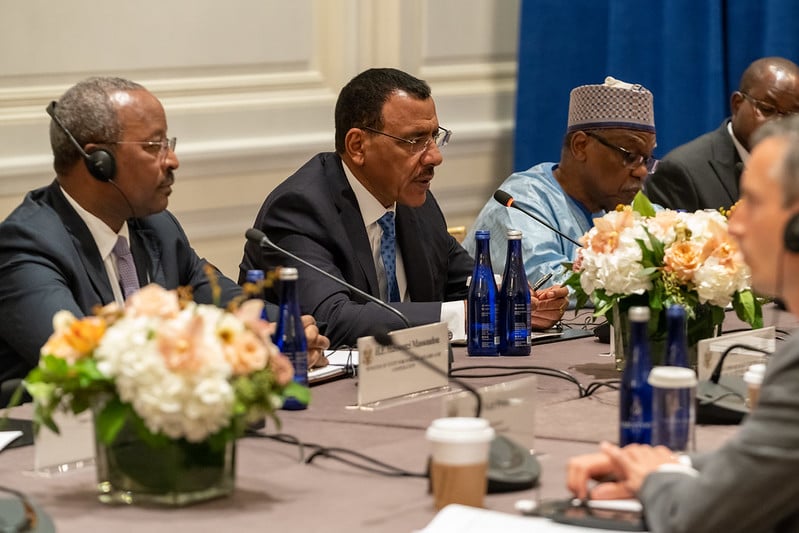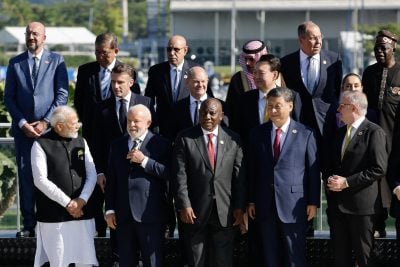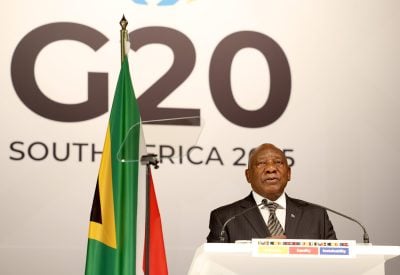Nigeria’s President Bola Tinubu faces a tough initial challenge as the chairman of the Economic Community of West African States (Ecowas).
Last week, a coup d’état occurred in Niger, during which the presidential guard detained President Mohamed Bazoum. General Abdourahamane Tchiani, the commander of the presidential guard, proclaimed himself the leader of a new military junta.
Following the coup, Ecowas has set an August 6 deadline for Tchiani to step aside and reinstate the democratically elected Bazoum to power.
Despite Benin’s Minister for Foreign Affairs, Aurélien Agbénonci, stating that diplomacy is the “priority solution,” a military intervention by Ecowas members has not been ruled out.
The Committee of Chiefs of Defence Staff of Ecowas met in Abuja this week to discuss the “political situation in the Republic of Niger.” Earlier this year, President Tinubu emphasised that the organization “must stand firm on democracy.”
The organisation has not intervened militarily to prevent any of the seven coups in West and Central Africa that have taken place since 2020, but Niger could be the tipping point.
Following the military takeovers in Mali, Burkina Faso, and Guinea, Ecowas suspended their memberships. For Niger, the organisation has announced unprecedented economic sanctions, including a ban on oil exports and imports, and a suspension of cross-border financial transactions in a country with a GDP per capita of only $573.6, compared to the world average of $13,920.
Bazoum denies coup plotters’ insecurity claims
The coup d’état in Niger must be understood in the context of the country’s ongoing war against jihadist activities.
A paper released by the US-based non-profit ACLED states that Niger confronts an array of security challenges.
“In the west, it faces the Sahelian insurgency driven by IS Sahel and the al-Qaeda-affiliated JNIM, while the southeastern Diffa region is affected by the ISWAP and Boko Haram insurgency,” it says.
General Abdourahamane Tchiani, who declared himself the head of a transitional government, named “the National Council for the Safeguard of the Homeland”, claims that Bazoum’s government failed to deal with the violent Islamist extremism that has festered in the region.
Niger’s military government announced on Thursday that it was scrapping military pacts made between Niamey and France, which has about 1,500 troops in the country. They argue that the former colonial power has failed to fulfill its promises to improve security in Niger. France had redirected some of its troops from Mali to Niger in early 2022 following a state coup in Mali.
But in an opinion piece published in the Washington Post on August 3, Bazoum stated that “Niger’s security situation has improved dramatically — facilitated by the very partnerships the junta opposes.”
Data collected by ACLED supports Bazoum’s argument. “While the number of political violence incidents increased further in 2022, the lethality of the violence has steadily declined, with a significant overall decrease in fatalities last year,” says the non-profit.
Experts fear that the interim military government might worsen a situation that has been gradually improving in recent years.
ACLED analyst Héni Nsaibia warns that the potential fallout of the current political instability “may affect the entire Sahel region, exacerbating existing security challenges and possibly giving rise to new threats both domestically and regionally due to the ramifications of the current crisis.”
“Ongoing insurgencies and armed groups like JNIM, IS Sahel, ISWAP and Boko Haram (JAS) may exploit and profit from such instability and discord, leading to escalating levels of violence,” he says.
Want to continue reading? Subscribe today.
You've read all your free articles for this month! Subscribe now to enjoy full access to our content.
Digital Monthly
£8.00 / month
Receive full unlimited access to our articles, opinions, podcasts and more.
Digital Yearly
£70.00 / year
Our best value offer - save £26 and gain access to all of our digital content for an entire year!

 Sign in with Google
Sign in with Google 



